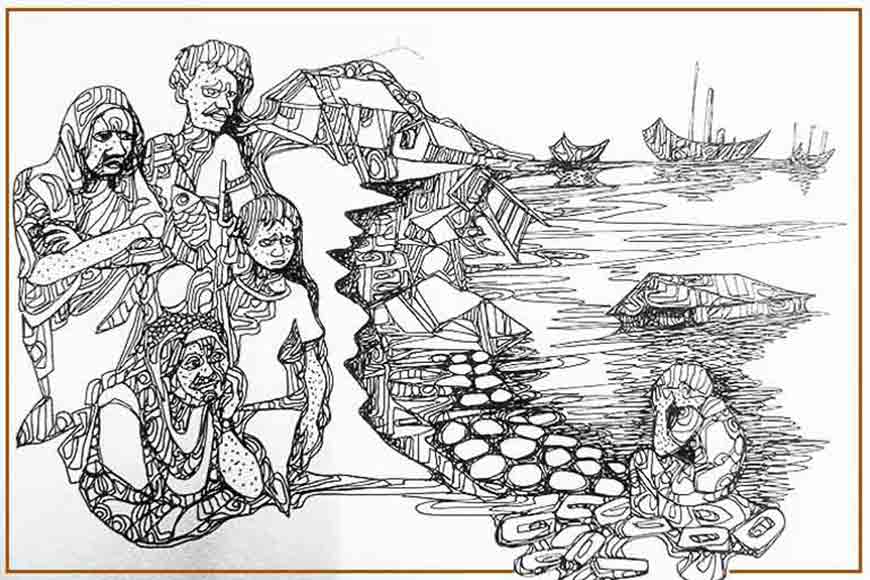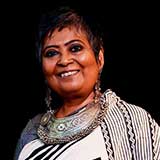Behind Closed Doors: The Invisible Mental Health Struggles of Women - GetBengal Story

As she looks out over the street from her single room apartment in Bengaluru, Rekha is positioned at the balcony and the city is waking. It is October 10, World Mental Health Day. But today will be another day: She will wake up, prepare breakfast, clean, then work ten hours in a garment factory, and return to finish her chores. Quietly, she comments, "Sometimes at night, I've cried so much that before morning, I feel empty." But if she were to share these feelings with her family, they would say. "Why are you so weak?" So she remains quiet.
Rekha's experience is just a drop in the ocean of silence. Throughout India, women, especially Dalit, Adivasi, queer, disabled, and working-class women, experience their daily struggles around mental health not just as a function of gender, but in terms of caste, economic security, sexual stigma, and regional neglect. This is without privilege; it is just reality.
Intersectionality Behind the Numbers
About 60–70 million Indians suffer from mental illness. Women are comparatively more affected, but their experiences are far from uniform. The depression of a Dalit woman surviving daily caste-based humiliation is not equivalent to a middle-class woman’s postpartum anxiety. If a miner dismisses an Adivasi woman from work, the trauma she experiences is not comparable to the academic stress of a high-caste, educated woman. Yet, policy-making often erases these differences, labeling all problems as a mere “lack of treatment.”
Arti, a 19-year-old student from Delhi, shares, “I once went to a counselor. When my uncle found out, he said, ‘No one will marry you now.’ That one sentence was enough. I stopped going. Since then, I tell no one about it.”
For queer women and trans people, these barriers are even more severe. Many counselors are not trained to support queer clients. One queer worker says, “We were told to ‘fix ourselves.’ Even in mental health, our existence is erased.” Intersectionality helps understand how access to mental health services is stratified by social hierarchy and politics.
Different Crises for Women
This year’s World Health Day theme is mental health in humanitarian crises. But for many Indian women, daily life itself is a crisis. Even when natural disasters affect indiscriminately, women are impacted disproportionately—they line up for ration, run the household, feed the family, all while burying their own mental agony. Kiran, the wife of a fisherman in Odisha, said, “A new roof above our heads is fine; but no one asks me about my nightmares. When I scream in my sleep, everyone says, “You are a mother; you must be strong.”
Caste-based violence doubles the crises for Dalit women. Muslim women face communal discrimination. Migrant women endure uncertainty while trying to sustain their existence in cities. Yet the state’s statistics rarely capture these different layers of mental stress.
The Geography of Social Abandonment
Mental health services may be wholly focused towards urban, rich people, yet even in urban areas, class and caste hierarchies dominate. As Lata, a community health worker in a Adivasi village in Odisha, has shared, “Some women hesitate or go mute after being postpartum. Families say, 'it's weakness; it will pass,' and hospitals offer sleeping pills alone, for example."
A housewife from Bengaluru noted, “There was a clinic, but people used English, charged a lot, and looked at me funny.”
Here, we witness the struggle of class, caste, and geography: services exist but often the ones who need services are not the ones being assessed.
Unjust Medication and Subordinate Care
India’s initiatives—postpartum counseling, NGO-run psychosocial support, digital tools—are promising. But most often, they ignore the realities of women’s lives. Pills or mindfulness exercises cannot heal wounds caused by gender discrimination, caste oppression, or wage exploitation.
A Dalit construction worker in Mumbai told an NGO counselor, “They said, ‘Count numbers when you feel afraid.’ But tomorrow, my contractor will cheat me because I am low caste, and I can do nothing. How am I supposed to stay calm?”
This shows that treatment without justice only deepens isolation.
A Feminist Lens on Intersectionality
Intersectionality rarely reflects in mental health policy. Addiction in men is labeled as a medical condition with funding allocated, but women’s mental suffering is seen as moral failure—ignored or stigmatized. Queer identities are erased. Caste-based injustice is met with silence. Poverty is treated as unfortunate harm rather than a systemic cause.
A nurse from Telangana says, “We have to screen for depression. But for women from Dalit or very poor families, the family resists even more. They fear others will find out. Marginalized people are therefore the most silent.”
From a feminist perspective, mental health is not merely a matter of professional shortage—it is about whose suffering is acknowledged and whose is erased.
Sparks of Resistance
Yet women are not entirely silent. Suman, a housewife from Jharkhand, joined a self-help group and says, “We talk about headaches, body pain. But really, we talk about our grief. At least here, no one laughs at us.”
Dalit women’s organizations in Uttar Pradesh recognize class-based humiliation as trauma, not individual weakness. Queer groups in Bengaluru have created safe spaces. Migrant girls in Delhi form small networks to survive. Though seemingly small, these efforts crack the silent veneer imposed by patriarchy and caste oppression.
What World Mental Health Day Should Mean
In India, it must be intersectional. Budgets should be gender-sensitive, caste-aware, and queer-supportive. Maternal health, domestic violence prevention, and school health systems must integrate psychosocial care. Monitoring should not only assess service gaps at the district level but also identify who is excluded due to language, caste, class, or sexuality.
Psychiatrist Bharat Batwani once said, “We all, at some point, drown in darkness… we are all passengers in the same boat.”
From a feminist perspective, the truth is harsher—some cannot even get on that boat. They are told to silently swim against the currents of patriarchy, caste, and class.
On this October 10th, we have two choices: we can repeat the same old slogans, or we can acknowledge all the layers of injustice within the mental health system. Only then can Rekha and Arti and Lata and Suman and millions of women like them bear those burdens with dignity—not in silence, but in the power of togetherness.
Note:
Translated by Krishnendu Mitra
To read the original Bengali article, click here.











